Dialogues on education for peace, human rights and sustainable development
Article published on 28-10-2022
Between 20 to 21 October 2022, the National Commissions for UNESCO of Germany, Poland, the Republic of Moldova and Romania held an online meeting in the context of the revision process of the 1974 UNESCO Recommendation concerning education for international understanding, co-operation and peace and education relating to human rights and fundamental freedoms.
The objectives of the revision of the Recommendation were outlined on the basis of UNESCO strategic priorities highlighted in the report Reimagining our futures together: A new social contract for education and the six global initiatives adopted at the Transforming Education Summit in September 2022, side event during the 77th session of the UN General Assembly.
The readings of the Recommendation were brought up in the light of the following themes:
• Education for sustainable development
• Education for cultural heritage
• Education through art
• Education for global citizenship
They were introduced and then discussed in workshops as follows:
• Education for sustainable development – facilitated by the German National Commission for UNESCO; speaker Bianca BILGRAM, Head Task Force Education for Sustainable Development; workshop moderator Klaus SCHILLING, National Coordinator ASPnet Germany.
• Education for cultural heritage - facilitated by the Polish National Commission for UNESCO; speaker Alicja JAGIELSKA BURDUK, Secretary-General.
• Education through art. The theater as case study - facilitated by the National Commission of Romania for UNESCO; speaker Romina BOLDAŞU, vice-dean and Andreea JICMAN, The Theatre Faculty, National University of Theatre and Cinema Art “I.L. Caragiale” in Bucharest (UNATC)
• Education for global citizenship - facilitated by Republic of Moldova Commission for UNESCO; speaker Oxana ABRAMOVA, Director of the Aspnet Theoretical High School “Alexandr Puskin” Chişinău.
The participants were students aged 13-16 years old from ASPnet member schools. They were invited and were also among the participants Ukrainian students forcely displaced in the Republic of Moldova, Poland and Romania. All those present at the event expressed their hope that students from Ukrainian schools will be able to participate in the next work meeting on peace education.
The conclusions of this meeting were translated by children into the language of comics. The activity was coordinated by Mihai Grăjdeanu, teacher and comic author.
The objectives of the revision of the Recommendation were outlined on the basis of UNESCO strategic priorities highlighted in the report Reimagining our futures together: A new social contract for education and the six global initiatives adopted at the Transforming Education Summit in September 2022, side event during the 77th session of the UN General Assembly.
The readings of the Recommendation were brought up in the light of the following themes:
• Education for sustainable development
• Education for cultural heritage
• Education through art
• Education for global citizenship
They were introduced and then discussed in workshops as follows:
• Education for sustainable development – facilitated by the German National Commission for UNESCO; speaker Bianca BILGRAM, Head Task Force Education for Sustainable Development; workshop moderator Klaus SCHILLING, National Coordinator ASPnet Germany.
• Education for cultural heritage - facilitated by the Polish National Commission for UNESCO; speaker Alicja JAGIELSKA BURDUK, Secretary-General.
• Education through art. The theater as case study - facilitated by the National Commission of Romania for UNESCO; speaker Romina BOLDAŞU, vice-dean and Andreea JICMAN, The Theatre Faculty, National University of Theatre and Cinema Art “I.L. Caragiale” in Bucharest (UNATC)
• Education for global citizenship - facilitated by Republic of Moldova Commission for UNESCO; speaker Oxana ABRAMOVA, Director of the Aspnet Theoretical High School “Alexandr Puskin” Chişinău.
The participants were students aged 13-16 years old from ASPnet member schools. They were invited and were also among the participants Ukrainian students forcely displaced in the Republic of Moldova, Poland and Romania. All those present at the event expressed their hope that students from Ukrainian schools will be able to participate in the next work meeting on peace education.
The conclusions of this meeting were translated by children into the language of comics. The activity was coordinated by Mihai Grăjdeanu, teacher and comic author.









